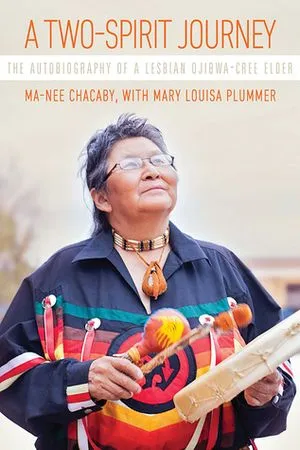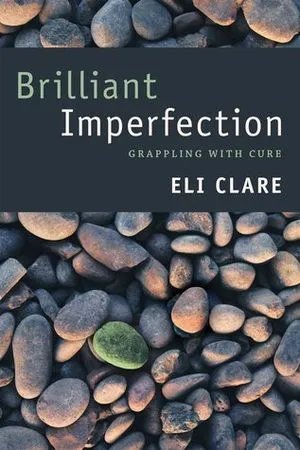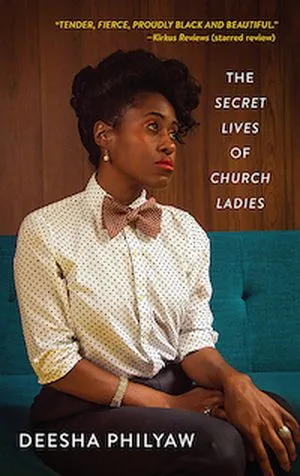
20 Must-Read Books from University Presses
University presses have a reputation for publishing niche nonfiction and dry academic tomes. And while many university presses do publish plenty of scholarly works that might not hold much interest for the general population, that is far from all they publish. In fact, university presses publish just about every kind of book that exists: memoirs, essay collections, history, poetry, novels, short story collections. They also publish widely across genre. Though many focus on literary fiction, fiction in translation, and nonfiction, some of them also publish fantasy and dystopian novels, fabulist works, mysteries, and more.
Unlike the big commercial publishers, most university presses aren’t driven by profit. This means that they publish a lot of wonderful books that are deemed “unsellable” by traditional presses. And while the whole notion of what sells and what doesn’t is infuriating, that’s a different post. The point is that university presses publish a lot of exciting books every year, often by authors from marginalized communities. If you’re looking for innovative novels, eye-opening histories, regionally specific anthologies, works in translation, and stories told from perspectives that are sometimes ignored by mainstream publishing, then university presses are your friend. They’re also a fantastic way to discover under-the-radar books that may not get a lot of buzz, but are absolutely worthy of your time and attention.
I am so grateful to these presses for all the books and authors they’ve introduced me to. As I’ve become more enamored of university presses, I’ve discovered more and more books for my TBR. This list of books from university presses doesn’t even come close to covering all the university press books I’ve loved and/or want to read. But it does serve as a starting point. I hope these titles are only the beginning of your journey through the wonderful wonderful of university presses. I know mine is far from over.
Must-Read Books From University Presses
Memoirs and General Nonfiction

A Two-Spirit Journey by Ma-Nee Chacaby (University of Manitoba Press)
Ma-Nee Chacaby is a Two-Spirit Ojibwa-Cree lesbian. In this beautifully told account of her life, she reflects on family, history, motherhood, illness, activism, relationships, trauma and healing, and her winding path to self-love. Though it’s not a light read, it’s a worthwhile one. Chacaby’s warmth, humor, determination, wisdom, and spirit shine through on every page. (CW for domestic violence, rape, sexual assault, sexual abuse, physical assault)

Brilliant Imperfection by Eli Clare (Duke University Press)
In this book, disabled writer and activist Eli Clare explores the idea of cure from many different angles: how cure has been used to harm disabled people, how medical institutions often tout cure as a way to “fix” disabled people, and the inherent violence of that attitude. He writes about his own experiences as a queer, trans, disabled person, as well as sharing the stories of other disabled activists. It’s a book full of history, cultural analysis, and personal reflection that will change how you think about the world.

White Freedom by Tyler Stovall (Princeton University Press)
This is the sort of academic text that many readers associate with university presses. But though it is scholarly and detailed, it’s not dry. Stovall examines the idea of freedom, exposing how western conceptions of freedom have been used throughout history to further fascism and white supremacy. It’s an eye-opening history and critical analysis of a complicated idea.

The Toni Morrison Book Club by Juda Bennett, Winnifred Brown-Glaude, Cassandra Jackson, and Piper Kendrix Williams (University of Wisconsin Press)
Have you ever read a group memoir? In this unusual and thoughtful book, four women of difference races and sexualities reflect on the transformative power of their book club. They use Toni Morrison’s work as a jumping-off point for intimate and far-ranging conversations about race, racism, accountability, the uses of literature, and so much more.

True Sex by Emily Skidmore (New York University Press)
Queer and trans people have always been here, as Emily Skidmore asserts in this fascinating book of LGBTQ+ history. Using a variety of sources, she paints a vivid picture of the lives of 18 trans men in the late 19th and early 20th century. Many of these men lived in small towns, choosing to work, love, and build families in communities outside of urban centers. Her careful, thoughtful research is a welcome addition to the complicated and multi-layered history of trans people in the U.S.

The Alchemy of Us by Ainissa Ramirez (MIT Press)
If you’ve ever wondered what kind of impact the material world has on our lives, you’ll want to pick up this fascinating book by scientist and science writer Ainissa Ramirez. In it, she examines several key inventions, including clocks, light bulbs, and silicon chips. She tells the stories of how each of these things came to be, and explores how materials have shaped history and culture.
Essay Collections & Anthologies

Shapes of Native Nonfiction Edited by Elissa Washuta and Theresa Warburton (University of Washington Press)
In this far-ranging collection of essays, Indigenous writers explore family, home, landscape, identity, trauma, history, and memory. Some of the essays are about writing itself. Others tell stories about particular experiences or moments. Still others are more outwardly focused, exploring art, culture, and politics. Part of what makes this book so unique is the various innovative forms the essays take.

Infinite Cities: A Trilogy of Atlases — San Francisco, New Orleans, New York by Rebecca Solnit, Joshua Jelly-Schapiro and Rebecca Snedeker (University of California Press)
Yes, this is actually three books, but they go together! Each of these three volumes is a unique, one-of-a-kind atlas of a city. Each book contains a collection of beautifully drawn maps that illuminate the messy, shifting, contradictory lived realities of the city they describe. These maps explore everything from waste disposal and radio stations to the history of the slave trade and jazz. Accompanying the maps are essays from a range of contributors, explaining the significance of what the maps describe. New York, New Orleans, and San Francisco come alive in these extraordinary atlases.

This is One Way to Dance by Sejal Shah (University of Georgia Press)
In these essays, Shah writes about dancing and food, growing up in western New York, moving through predominantly white spaces as an Indian American woman, friendship, language, and the places that have shaped her. Her prose is deft and graceful. Some of the essays are lyrical and meditative; others delve directly into a particular idea or experience. Her writing is so assured, her voice warm and open.

Sovereign Erotics Edited by Qwo-Li Driskill, Daniel Heath Justice, Lisa Tatonetti and Deborah A. Miranda (University of Arizona Press)
This book doesn’t fit neatly into any one category; it’s actually a collection of essays, short stories, and poetry. It’s a wonderful introduction to many fantastic queer and Two-Spirit Indigenous writers. The pieces are eclectic and varied. You’ll find poems about childhood, grief, and history; fantastical stories set in the future; essays on queer identity and belonging. It’s a book truly celebrates the breadth of queer Indigenous literature.
Poetry

Some Are Always Hungry by Jihyun Jun (University of Nebraska Press)
I don’t think I’ve ever come across a poet who uses food in their work the way Jihyun Jun does. Some of the poems themselves are recipes. The food she describes is chaotic and painful, comforting and freeing. She writes about food as a way to understand the past and to create new stories. Her poems are about immigration and survival, the trauma of displacement, family lineage, grief, communal celebration, and diaspora.

Catalog of Unabashed Gratitude by Ross Gay (University of Pittsburgh Press)
This delightful book of lyrical poems celebrates all the small joys in life: eating, being in the garden, feeling the grass under your feet. Gay writes about plums and fruit trees and city streets and sharing a meal and compost and sweet potato biscuits. It’s an exuberant book full of many small moments of gratitude, wisdom, and humor.

A Brief History of Fruit by Kimberly Quiogue Andrews (University of Akron Press)
In these beautiful poems, Andrews writes about the loneliness of moving between countries and cultures, of loving more than one place and containing many truths and stories inside a body. It’s a visceral collection that returns again and again to questions of home, belonging, and place.

Bashō’s Haiku: Selected Poems of Matsuo Bashō by Matsuo Bashō, Translated by David Landis Barnhill (SUNY Press)
While university presses put out lots of fantastic contemporary work, they’re also a great place to find classics and new translations of older work — like this beautiful collection of haikus. Bashō is one of the most revered Japanese poets of haikus; his work is a must-read for fans of the form, and poetry loves in general. This collection contains a selection of some of his best and most beloved poems.
Fiction

The Secret Lives of Church Ladies by Deesha Philyaw (West Virginia University Press)
In this masterfully crafted collection of stories, Philyaw explores the inner lives of Black women, all of whom have some connection to different Southern churches. The stories range across time, featuring four generations of women as they wrestle with their own desires and the expectations of their communities. The stories are about love, sex, family, parenting, and community.

Kafka in a Skirt by Daniel Chacón (University of Arizona Press)
University presses seem to have an affinity for short story collections, because I had a lot of trouble picking only a few for this list. These beautifully strange and sometimes fantastical stories, rooted in Chicano culture, are all set in and around El Paso and the U.S.-Mexico border. In them, Chacón explores walls — not just the physical barriers that denote borders, but internal and emotional and even imaginary walls.

LGBTQ Fiction and Poetry from Appalachia Edited by Jeff Mann and Julia Watts (West Virginia University Press)
One of the great things about books from university presses is that they often highlight the culture of a specific region. This collection brings together the work of dozens of LGBTQ+ Appalachian writers. Through poetry and stories, they explore what it means to be queer and Appalachian. Many of the pieces confront the challenges of queer life in Appalachia, while others celebrate the richness of queer lives and culture in the region.

Limbo Beirut by Hilal Chouman, Translated by Anna Ziajka Stanton (University of Texas Press)
This novel is set in Beirut in May 2008, during the violence that erupted in the city when Hezbollah militants and Sunni fighters clashed over the course of several days. The narrative follows five very different characters: a pregnant woman, a gay artist, an engineering student in Germany, a doctor, a former militant, and a disillusioned novelist. Chouman uses their distinct POVs to tell a story about identity, home, violence, belonging, and trauma.

The Belle Créole by Maryse Condé (University of Texas Press)
In this richly textured novel by Guadeloupean author Maryse Condé, a Black gardener, Dieudonné, is accused of murdering his employer and lover, a wealthy white woman. The novel moves between past and present, as Dieudonné wanders the city and his memory, attempting to make sense of what’s happened to his life. Through Dieudonné, Condė explores the racial tensions and turmoil, and of 21st century Guadeloupe.

A Death in Harlem by Karla F.C. Holloway (Northwestern University Press)
University presses publish books in a truly astonishing array of genres. This is a historical mystery set in Harlem in the 1920s. The story follows Harlem’s first Black policeman as he attempts to solve a murder that rocks that Harlem elite. Partially inspired by Nella Larson’s Passing, the novel explores colorism, racial passing, and the interplay of class, race, and power during the Harlem Renaissance.
Looking for more books from indie presses? Check out 100 Must-Read Indie Press Books, as well as the rest of our Indie Press archives.





